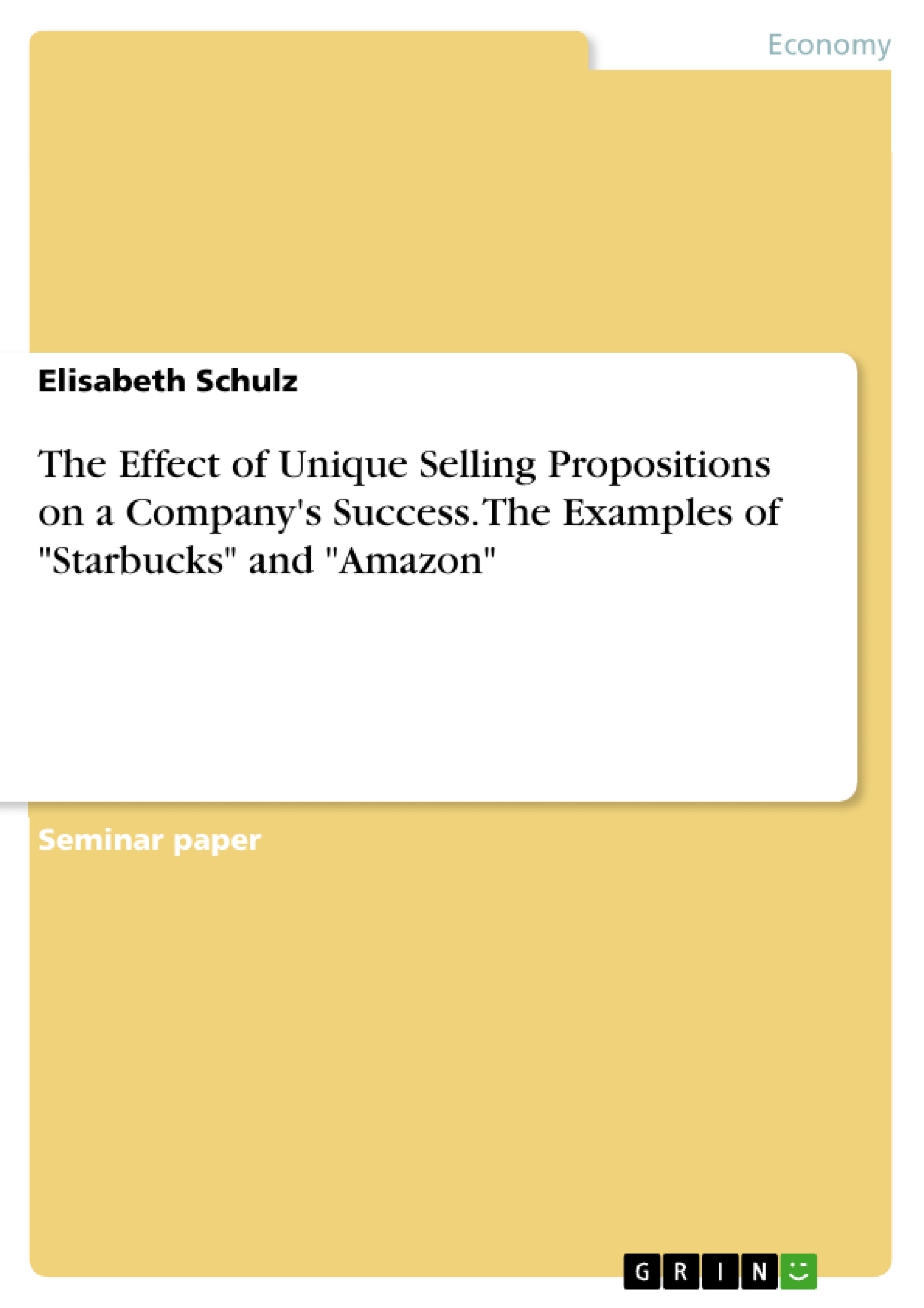In this assignment, the effect of a unique selling proposition on a company’s success will be discussed and examined. In order to do that, after this introduction into the USP, a closer look will be taken into the concept of USP and some theoretical examples of what a USP could be.
The concept of the so-called unique selling proposition was invented in the early 1940s by the television advertising pioneer Rosser Reeves. He created successful advertising campaigns and slogans like for example for the M&M’s candies: "Melts in your mouth, not in your hand.’"
He believed that an advertisement or commercial should show off the value or unique selling proposition of a product and that it has to be honest in order to be sold successful & he was right. But why is it important to have a USP?
Table of Contents
- 1 Introduction
- 1.1 Methodology
- 2 A deep-dive into the concept of unique selling proposition
- 3 Conclusion
Objectives and Key Themes
This assignment aims to examine the effect of a unique selling proposition (USP) on a company's success. It explores the concept of USP, analyzes what constitutes a successful company, and applies these findings to real-world examples: Starbucks and Amazon. The goal is to demonstrate a positive correlation between a strong USP and company success.
- The definition and historical development of the unique selling proposition (USP).
- Factors contributing to a company's overall success.
- Various strategies for establishing a unique selling proposition.
- Application of USP theory to real-world examples (Starbucks and Amazon).
- The relationship between a unique selling proposition and long-term company success.
Chapter Summaries
1 Introduction: This introductory chapter establishes the context of the assignment by presenting a scenario where an investor must choose between several coffee startups. It introduces the concept of a unique selling proposition (USP) as a key differentiator in crowded markets, highlighting its historical development and importance in a competitive business environment. The chapter outlines the assignment's methodology and its goal of demonstrating the positive relationship between a USP and company success by analyzing the concepts of USP and company success, followed by case studies of Starbucks and Amazon.
2 A deep-dive into the concept of unique selling proposition: This chapter delves into the core concept of a unique selling proposition. It discusses the evolution of the understanding of USP, from a focus on single, outstanding features to a broader consideration of product or service positioning within the spectrum of customer needs. The chapter explores various strategies for creating a USP, including offering the highest quality (like Rolls Royce), exclusivity, offering the widest choice, and providing superior guarantees. It also introduces the emotional selling proposition (ESP) as a means to connect with consumers on an emotional level, emphasizing the significance of differentiation in a competitive landscape and showcasing diverse methods companies employ to stand out. The examples used illustrate the multifaceted nature of USP and its importance in differentiation strategies.
Keywords
Unique Selling Proposition (USP), company success, competitive advantage, marketing strategy, brand differentiation, customer needs, case studies (Starbucks, Amazon), market positioning, emotional selling proposition (ESP), globalization, digitalization.
Frequently Asked Questions: Comprehensive Language Preview
What is the overall topic of this document?
This document is a comprehensive language preview providing an overview of a study examining the relationship between a unique selling proposition (USP) and a company's success. It uses Starbucks and Amazon as case studies.
What are the main sections included in this preview?
The preview includes a table of contents, objectives and key themes, chapter summaries, and keywords. It offers a structured and detailed overview of the complete work.
What is the methodology used in this study?
The methodology isn't explicitly detailed in this preview, but the introduction mentions a scenario involving an investor choosing between coffee startups to illustrate the importance of a USP. The study then analyzes the concepts of USP and company success, using case studies of Starbucks and Amazon.
What are the key themes explored in this study?
Key themes include the definition and historical development of USP, factors contributing to company success, strategies for establishing a USP, application of USP theory to real-world examples (Starbucks and Amazon), and the relationship between USP and long-term company success.
What are the key objectives of this study?
The study aims to examine the effect of a USP on a company's success, exploring what constitutes a successful company and demonstrating a positive correlation between a strong USP and company success.
What are the chapter summaries provided in this preview?
The preview summarizes the introduction (setting the context and introducing the methodology), and a chapter delving into the concept of USP, including its evolution, different strategies for creating one, and the significance of emotional selling propositions (ESP).
What are the key words associated with this study?
Keywords include Unique Selling Proposition (USP), company success, competitive advantage, marketing strategy, brand differentiation, customer needs, case studies (Starbucks, Amazon), market positioning, emotional selling proposition (ESP), globalization, and digitalization.
What real-world examples are used in the study?
The study uses Starbucks and Amazon as real-world case studies to illustrate the application of USP theory and its impact on company success.
What is an Emotional Selling Proposition (ESP)?
While not fully explained in this preview, an ESP is mentioned as a method to connect with consumers on an emotional level, highlighting its role in differentiation strategies.
What is the overall conclusion of the study (as hinted at in the preview)?
The preview suggests a conclusion demonstrating a positive correlation between a strong USP and company success, but the full details are not provided.
- Citar trabajo
- Elisabeth Schulz (Autor), 2020, The Effect of Unique Selling Propositions on a Company's Success. The Examples of "Starbucks" and "Amazon", Múnich, GRIN Verlag, https://www.grin.com/document/1137312




